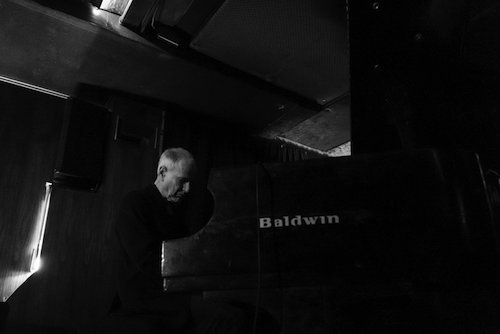By Filipe Freitas
Marc Copland, 2023 by © Clara Pereira
Name: Marc Copland
Instrument: piano
Style: contemporary jazz, post-bop
Album Highlights: Second Look (Savoy, 1996), Lunar (Hatology, 2002), Nitghtfall (InnerVoice, 2017)
You’re going to be 75 this month. Any birthday wishes?
Peace and music. I mean that in a very concrete sense. Several years ago, Dave Liebman and I were on tour in Europe playing duo, and one of our stops was Kyiv. The opening act was a big band composed of young Ukranian musicians, men and women who looked to be in their early twenties at most. The band was conducted by a young American and they sounded great. Dave and I were impressed that the audience, like the band, was almost entirely younger people. Not too many years later, after the war in Ukraine had been going on for a little bit, it hit me - a lot of those kids were likely dead, or wounded, or had fled the country. It’s a horrifying thought.
Before definitely stick to the piano, you were an alto saxophonist in your hometown, Philadelphia. Can you tell us what made you return to piano?
Here’s what led me back to the piano, which I’d played a little bit: textures, colors, harmonies, chords, and anything I heard using those elements in a creative way: Joni Mitchell, Debussy, Shostakovich, Berg, the Doobie Brothers. The way Coltrane’s and Miles’ bands relentlessly explored stretching the bounds of harmonic convention was fascinating. That kind of exploration was easier for me to hear and work with on piano.
Whether playing originals or jazz standards, it's clear that you found your own voice. What’s the secret and what advice do you have for younger players?
Understand that the hardest thing to play well is not a burning up-tempo--it’s a ballad. Play honest music. Play from the heart. Try to be successful at connecting what you really hear and really feel.
Name two persons who influenced you the most as a musician.
Only two? For taste, touch, ears-- Herbie Hancock. For all that, and for complete honesty, John Abercrombie. For prioritizing the love of music and spontaneity, Gary Peacock. And can’t forget early teachers when I was a teen: Lennie Tristano, who tolerated my aesthetic disagreements with him --which were substantial -- and taught me how to hear; and George Rochberg, who, in our one hour together, explained what it means to be an artist. He sent me home with a reading list of four Hermann Hesse novels and Rilke’s Letters to a Young Poet. I loved music but didn’t know how to open the lock. Rochberg showed me the key.
Name two persons whom you've never collaborated with but you'd like to.
Anybody who wants to play together. I’m up for trying something new. The disappointment when it doesn’t work is easily eclipsed by the joy and discovery when it does.
Tell us a few jazz records that you consider indispensable.
Miles Davis - Miles Smiles; Herbie Hancock - Dedication, Paul Desmond / Gerry Mulligan - Two of a Mind; Bill Evans - Sunday at the Village Vanguard; Joni Mitchell - Song to a Seagull; Miroslav Vitous - Infinite Search.
How would you define your sound in a few words?
That’s somebody else’s gig! But sound is in fact the most important thing: I can’t begin to play without getting in touch with the feel of the piano, the blend with the other instrument(s), the colors of the notes bouncing around the sound board-- that has to make sense. If that’s all ok, then it’s possible to make music.
What do you like to listen to that’s non jazz?
Anything that catches my ear because it is unusual in some way, whether jazz or something else. First time I heard the Beatles-- I was totally into it. Rock ‘n roll up to then was almost always 1-4-5 chord progressions, 4 and 8 bar phrases. The Beatles had different things going on, and it sounded fresh. Same thing with Joni Mitchell, especially her early work. Same thing with Coltrane’s Impressions and Sonny Rollins’ Now’s the Time - at the age of 16 or 17, I’d heard nothing like that.
If you weren't a musician, what would you have been?
I’d been hoping to major in sociology, and become a sociology teacher. Didn’t make it very far -- came to school in NYC, started hitting the clubs, and was hooked.
Projects for the near future?
The “Someday” quartet with Robin Verheyen, a “string thing” quartet with Mark Feldman, and of course trio. Probably almost time for another solo piano record.

